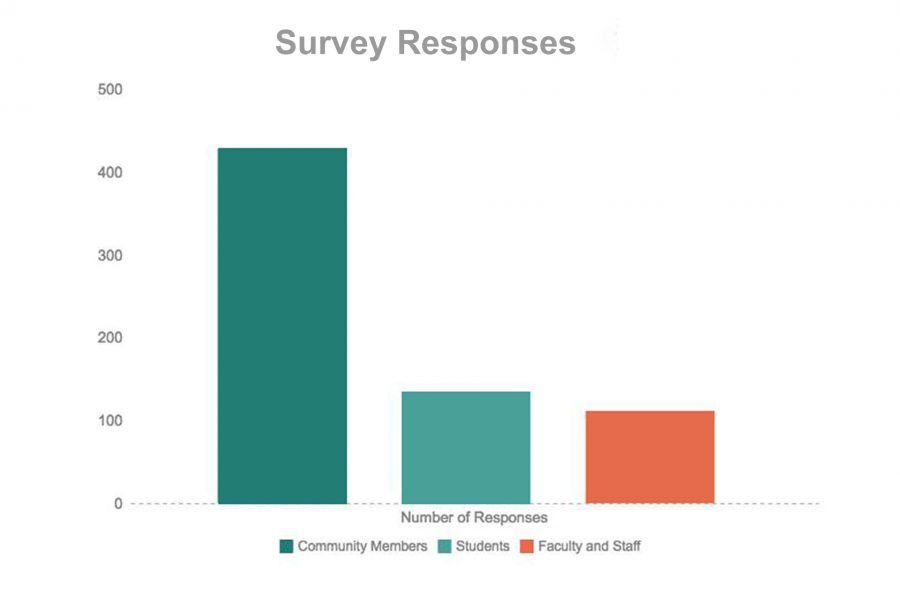Faculty members filled the Business-Communication Forum Friday, to discuss City College’s priorities in the face of statewide budget cuts.
Under the stress of severe cuts, faculty was slow to suggest cutting classes. Rather than supporting the Academic Senate’s proposal to begin cuts to this year, they voted in support of waiting a year to feel things out.
This suggestion is plausible because of the college’s surplus of approximately $40 million, $12 million of which could be used next year to absorb even the highest potential cuts. They feared that the disintegration of programs would ultimately make for tougher times ahead.
“Once we start cannibalizing ourselves, its really hard to get that back,” said Dr. Lynne Stark, president of the Instructors Association.
The meeting was scheduled in anticipation of Governor Jerry Brown’s budget passing Thursday, though Brown postponed the vote. The budget will cut $3.8 to $10.7 million in funding from City College. The exact amount hinges on whether proposed tax extensions pass on a potential special election ballot in June and if Prop 98 is fully funded.
The Board of Trustees and the college’s administration requested the meeting to receive input from faculty. Ultimately the Trustees make the decisions, but wanted to hear comments from faculty regarding a list of suggestions put forth by the Academic Senate.
“We’re here to get some important messages out, get some possible ideas out, without killing the messengers,” said John Kay, professor emeritus and moderator of the forum.
Under the senate’s proposal, categorical programs such as EOPS and DSPS would also be spared losses and receive the same support from the general fund as it did in the last year. These programs already suffered cuts in government funding in recent years by about 50 percent. City College has used general fund money to make up for the cuts and faculty agreed with the proposal to continue supporting them.
The group also showed reservations about letting go of employees to cut costs. Another plan to secure the jobs of all regular employees was supported following a lengthy discussion on the topic.
Economics Professor Peter Naylor suggested the proposal be rewritten to only include a commitment to full-time faculty, as well as make cuts to faculty overload and adjunct assignments evenly. But his proposal received generally no backing.
The issue of TLU’s was also brought up in relation to this. The more units an instructor teaches, the more TLUs they receive. A full-time professor has a minimum of 15 and the limit is set at 21, but is often exceeded.
Professor Dr. Dean Nevins suggested the limit be lowered or simply enforced. Then adjuncts could have more work and secure their positions.
Lowering per instructor TLU’s would also decrease the amount needed to be reserved in the cash fund. When an instructor receives additional TLUs, over the minimum, they may withhold they money from their paychecks as insurance in case they need to take time off.
The faculty voted to keep a fund of TLU liability, plus 5% of the total budget and the amount the college owes in deferrals. This results in a projected $18 million of the surplus to be held over each year.
Avoiding doomsday thinking, the faculty focused on keeping things positive and preserving City College for the community, students, and themselves. Members reflected on the recent ousting of Trustee members. Some took it as a signal that public disapproves when programs get cut, as the removal of Trustees is possibly linked to cuts to Adult Education last year.
Professor George Federman called City College “a school with cache” and stressed that its attractiveness generates revenue.
He warned against “cutting our own thoughts and then cutting each other” and said that the school may never need to scale down if it increases it’s lucrative flow of foreign students.
Though the group seemed generally hesitant against cuts, some expressed more caution then Federman. When Brown’s budget passes, colleges will be asked to follow the intent of the legislator, which means prudently eliminating courses. The legislator may choose to take things into their own hands when a school does not comply.
“To avoid getting the laws we might as well go along with [legislative intent]” said Kimberly Monda, chair of the Planning and Resources committee.













